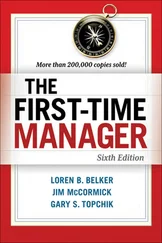Джон Болл - The First Team
Здесь есть возможность читать онлайн «Джон Болл - The First Team» весь текст электронной книги совершенно бесплатно (целиком полную версию без сокращений). В некоторых случаях можно слушать аудио, скачать через торрент в формате fb2 и присутствует краткое содержание. Год выпуска: 2013, Жанр: Триллер, на английском языке. Описание произведения, (предисловие) а так же отзывы посетителей доступны на портале библиотеки ЛибКат.
- Название:The First Team
- Автор:
- Жанр:
- Год:2013
- ISBN:нет данных
- Рейтинг книги:5 / 5. Голосов: 1
-
Избранное:Добавить в избранное
- Отзывы:
-
Ваша оценка:
- 100
- 1
- 2
- 3
- 4
- 5
The First Team: краткое содержание, описание и аннотация
Предлагаем к чтению аннотацию, описание, краткое содержание или предисловие (зависит от того, что написал сам автор книги «The First Team»). Если вы не нашли необходимую информацию о книге — напишите в комментариях, мы постараемся отыскать её.
Student protesters are being slaughtered in the Midwest.
The Jewish pogroms have begun.
You are now living in Soviet — occupied America!
One nuclear submarine and a handful of determined patriots against the combined might of Russia and Soviet-occupied America… The Most Explosive and Gripping “What If” Novel of Our Time!
First published January 1971
The First Team — читать онлайн бесплатно полную книгу (весь текст) целиком
Ниже представлен текст книги, разбитый по страницам. Система сохранения места последней прочитанной страницы, позволяет с удобством читать онлайн бесплатно книгу «The First Team», без необходимости каждый раз заново искать на чём Вы остановились. Поставьте закладку, и сможете в любой момент перейти на страницу, на которой закончили чтение.
Интервал:
Закладка:
He walked back to his office slowly, trying to think — to sort things out in his mind. The questions which confused him were not moral or ethical; he was concerned as to what would happen next — and after that. He walked into his office hardly aware that his phone was ringing.
He picked it up mechanically and said, “Yes?”
A female, mature voice he did not know wasted no time. “Mr. Hewlitt, did you arrange this press conference?”
“Yes.”
“Then will you come over to first aid right away, please.” That was all.
On the table in the small medical facility a man was lying on his back. He was breathing steadily and deeply, his eyes were open, but his mind seemed to have left his body. An efficient-looking middle-aged nurse Hewlitt had never seen before spoke to him without bothering with formalities. “I think you’d better call his paper, Mr. Hewlitt, or his home, and get some help. He’s in shock. No danger, but he should be moved from here as soon as possible.”
“Who is he?” Hewlitt asked.
A man in the room, whom Hewlitt had been aware of but had not looked at directly, answered the question. “Sol Horowitz of UPI. He’s had a bad heart for years.” He stopped, looked at Hewlitt, and realized that he was not one of the enemy. But his voice was still bitter when he spoke. “He was in Dachau when the Army came through and rescued him. All the rest of his family died there.”
6
After the incredible news of defeat, which was still disbelieved in many parts of the country where the reality had not yet sunk in, the impact of Zalinsky’s announcement was dulled. It was extensively reported by every form of the news media, but it did not arouse a great reaction. In the minds of millions of Americans the impossible and unthinkable had already taken place; after that nothing that followed in the wake very much mattered. The national illusion of being and having the best of everything had been broken, and that calamity totally overshadowed everything else.
As Hewlitt rode home that night he discussed the matter openly with Frank. The idea of listening devices everywhere was beginning to wear thin, plus which the subject did not compromise the fledgling underground organization in any way. Hewlitt was having thoughts about that too. All that he had to go on was Bob Landers’ statement that such a thing existed, but he could very well have put it that way in order to generate at least some initial enthusiasm within his own little group — to build “morale.” It could very well be that later on Landers would have formed other little groups and thus might have brought his “organization” into actual being.
“You’re in the White House,” Frank said. “Can’t you do something about it? Not much, maybe, but something.”
Hewlitt shifted the subject to a safer tack. “Frank, I’ve been as confused as everybody else. Right now I haven’t a clear idea of what I ought to do. I don’t want to clear out of here, even the way things are. I don’t know where I’d go.”
“Switzerland is supposed to be a pretty nice place. And they keep out of wars and that sort of thing.”
“Yes, but we can’t all go there. We just kept out of a war, and lost it by default.”
“I carry Senator Fitzhugh every now and then,” Frank offered as he edged his way into a traffic circle. “He still thinks that we did the right thing. He told me that at least we can live with our consciences.”
“And with our enemies. I don’t imagine that he likes that too much.”
Frank dropped his voice to the confidential level. “I’ll tell you something about that: he thinks that he’s going to fix everything in a few days. He knows all the higher-ups overseas face to face, and he’s confident that he can be a one-man peace mission to put things back the way they were, more or less. Then he’s gonna run for President.”
“He hasn’t a hope in hell,” Hewlitt said.
“He thinks he can do it.” Frank took the cab around a corner. “Where do you get all this?” Hewlitt asked.
“I carry a lot of people. And you’d be surprised what they tell taxi drivers. Ask my advice and everything. This afternoon I had a young girl in trouble. She just got in and asked me to take her where she could get a safe abortion.”
“What did you do?”
Frank half-turned until he could partially look over his shoulder. “In your business there’s a lot of things you can’t talk about. On some things I keep my mouth shut too.”
Hewlitt appreciated that; if a few others had had the same attitude, it might have made an appreciable difference.
As he read the detailed reports of Zalinsky’s announcement for the second time, Marc Orberg found it difficult to contain his elation. His life, at that point, satisfied him enormously until it seemed to him that he had nothing more to ask of God or man.
Everything, absolutely everything, was the way he wanted it now. He looked about him simply in order to savor the great success that was his, success that his enemies despised, which made it sweeter still. The entire penthouse suite was strikingly decorated in crimson, black, and stark white. Great dramatic globules of color carved the walls into a Brobdingnagian jigsaw puzzle. The vastly oversized, ultrasoft lounge davenport displayed its black and white zebra stripes at tfie focal point of the room; scattered around it were huge, almost shapeless upholstered chairs done in dead black and a white imitation of angora fur. The carpeting, laid over a triple pad, was the most brilliant red the manufacturer had been able to achieve; the pile was more than an inch and a half thick.
Opposite the entrance doorway the wild ballet of colors gave way to white once more in order to provide a background for a display on the wall of the famous Marc Orberg album covers. Mixed in the pattern, like brass rings awaiting the patrons of a merry-go-round, were six gold-colored records made in metal; symbols of a sale of one million copies or more. In a corner of the ceiling a small spotlight illuminated the display with an artful circle of light.
On the opposite wall was an heroic, larger-than-life-size portrait of Orberg himself, standing hands on hips, accentuating the taut,' sinewy hardness of his body. He wore a suede leather shirt laced loosely up the front, a wide belt to define his lean middle, and jeans which fitted him with near skintightness. The outline of his groin was clearly visible. The photograph radiated a fierce pride of masculinity, a restlessness, an unsuppressed urge for action, the knowledge of conquest achieved while most others of his own age had barely seized hold of their graduation diplomas.
Off the spectacular living room there was a dimly lighted alcove with an elaborately-carved Chinese bar. Close to it was the seldom closed door of the single bedroom, the electric blue carpet defining its twenty-five-foot-square area. The two walls opposite the doorway were almost entirely of glass, giving a spectacular view of the city spread out below. The bed itself was circular, almost ten feet in diameter, and set on a slightly raised dais where another concealed spotlight bathed it in deep violet light when the shades were drawn. Several pieces of striking abstract art dramatized one wall; on the fourth a huge sumi-emural suggested romance and courtship in ancient Japan. The entire effect was sybaritically luxurious with a strong sense of detachment from any other world that might exist elsewhere.
Marc Orberg had had it designed and executed exactly as he wanted it for two specific purposes: to satisfy his own incessant craving for the exotic and to offer an unparalleled setting for a continual variety of sexual experiences.
Although he was only twenty-six, he had been enjoying the pleasures of women for more than a decade. With the great surge in his popularity he had discovered that conquests became absurdly easy; he had only to make an announced personal appearance and hundreds of females would fight for the right to be closest to him when he emerged from the stage door. Through his narrowframed, uniformly successful business manager, Nat Friedman, he had seen to it that the word got out how any girl who wanted to could bring herself to his attention. All she had to do was to write her name, age, and telephone number on a small slip of paper and fold it to less than an inch square. Whenever Orberg made his way from a theater or concert hall to his waiting car, he would hold out his hands and accept the slips of paper placed in them. When his hands were filled, he would stuff the results into the pockets of his jacket and collect more. When he was asked the purpose of this, he always replied that it was so he could send them Christmas cards.
Читать дальшеИнтервал:
Закладка:
Похожие книги на «The First Team»
Представляем Вашему вниманию похожие книги на «The First Team» списком для выбора. Мы отобрали схожую по названию и смыслу литературу в надежде предоставить читателям больше вариантов отыскать новые, интересные, ещё непрочитанные произведения.
Обсуждение, отзывы о книге «The First Team» и просто собственные мнения читателей. Оставьте ваши комментарии, напишите, что Вы думаете о произведении, его смысле или главных героях. Укажите что конкретно понравилось, а что нет, и почему Вы так считаете.












